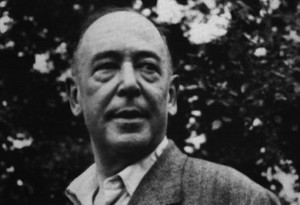 Fifty years ago today, C.S. Lewis died. Twenty-four years ago, I first read C.S. Lewis. I have been driven to reflect on the latter fact by the former fact, and I thought I might share a few thoughts regarding what C.S. Lewis has meant to me.
Fifty years ago today, C.S. Lewis died. Twenty-four years ago, I first read C.S. Lewis. I have been driven to reflect on the latter fact by the former fact, and I thought I might share a few thoughts regarding what C.S. Lewis has meant to me.
At the age of fifteen, my father put a copy of Mere Christianity in my hands. I do not know if I could overstate what that book did for me and for my Christian journey. It rocked my world. It absolutely revolutionized how I viewed the Christian life and, in particular, my own walk with Jesus.
Looking back on it, I suspect the major contribution it made to my own mind was to introduce the idea of an intellectually viable faith. It is hard to describe what Lewis’ initial appeal to the reality of a universal, objective, moral law did to my understanding of the faith. It showed me that faith was not reason-less, not a blind grasping for what we could not know. Throughout that book, Lewis showed the staggering explanatory power of Christianity, and, for the first time, I realized that the faith had ideational content that could be asserted as intellectually compelling in light of the realities of the world. It was, for me, the beginning of the end of the fundamentalist anti-intellectualism I had witnessed in some quarters of the church of my youth.
Secondly, it shattered the last vestiges of sectarian hubris within me. Here I was, reading an Anglican (who smoked and drank, no less!) and learning the faith in a way I had never learned it. It showed me that the faith transcended the little denominational boundaries I knew, and that the Church was a worldwide entity with lots of intriguing characters from whom I might draw help and guidance.
Its description of “mere Christianity” overwhelmed me with its simple brilliance. In short, I loved the idea of it. I did not come to see ecclesial distinctives as unimportant as a result of this approach. Rather, I think I first began to grasp what Al Mohler would later call “theological triage”: the difference between primary, secondary, and tertiary truths.
Furthermore, Lewis introduced me to G.K. Chesterton, about whom another post will have to speak. He also introduced me to George MacDonald. Furthermore, my interest in Tolkien is at least in some sense connected to his connection with Lewis and his role in Lewis’ conversion…though, there again, it was my father who first encouraged me to read J.R.R. Tolkien. So Lewis impacted me not only through what he wrote, but also through the writings of those to whom he introduced me.
After reading Mere Christianity, I began consuming everything Lewis had written…even the big volume of letters to Arthur Greeves. Looking back, I can see how irritating I became in it. I became obsessed with Lewis, a member of the cult of Lewis, if you will. I think my mimicking of Lewis’ way of speaking and my constant quoting of his words must have been very irksome to deal with. In due time, I outgrew such fixations, but the impact of Lewis has remained on my life to this day.
Oddly enough, I eventually reacted to my obsession with Lewis by setting him aside. I actually have not read him in years…though I have memorized more of Lewis’ words than I have of any other writer. Even so, the specter of Lewis (if you will allow the image) always seems to be around, and I rarely go very long without thinking about how he approached the faith or how he would have approached this or that question.
I will be forever grateful to Lewis for as long as I live, and to God for creating such a mind. Again, it’s been a while since I’ve actually read Lewis…a problem that I will have to remedy soon.

Wyman, Spencer and I were talking about Lewis tonight. My favorite book about him is “The Spiritual Legacy of C.S. Lewis” by Terry Glaspey – good read.
Hope you and family are well. We are all fine.
Hey Charles! So great to hear from you.
I have not read Glaspey’s book. I’ll have to check it out.
We are doing well too. So glad you guys are.
Sure do miss the Hall’s!
God bless you guys!